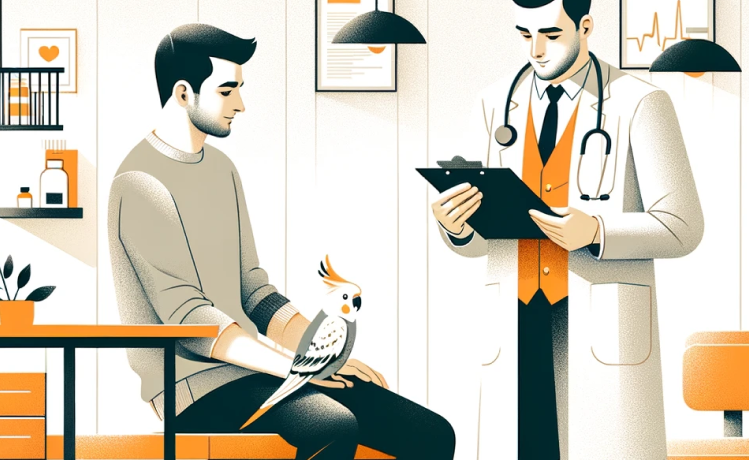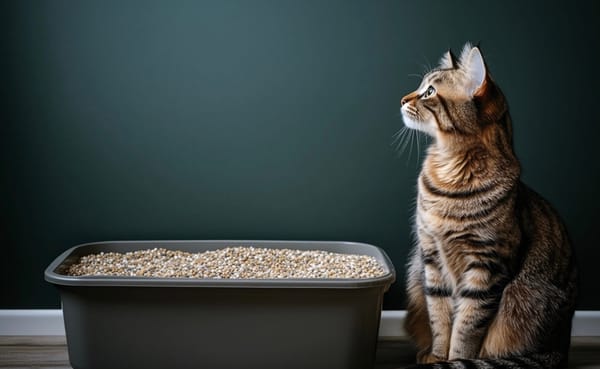Feathered Forecasts: The Vital Role of Regular Health Check-Ups in Avian Wellness

As a bird parent, it's easy to get caught up in the day-to-day care of your feathered companion. Between feeding, cleaning, and playing, it can be tempting to overlook one crucial aspect of responsible pet ownership: regular health check-ups. Just like dogs and cats, birds need periodic veterinary visits to ensure they're in top physical condition. In this article, we'll explore the importance of regular health check-ups for birds and how they can help prevent serious health issues down the line.
Why Are Regular Health Check-Ups Necessary?
Annual health checks might seem unnecessary, especially if your bird appears healthy and active. However, many bird owners don't realize that even subtle changes in behaviour or appetite can indicate underlying health problems. A trained avian vet can detect these red flags during a routine examination, allowing for early intervention before minor issues become major concerns.
Early Detection Is Key
Regular health check-ups enable your veterinarian to monitor your bird's overall health, identify potential problems, and address them promptly. For example, a routine blood test can reveal signs of liver disease, kidney failure, or diabetes – conditions that can be managed effectively when caught early. Similarly, a thorough physical examination can uncover hidden issues such as respiratory infections, tumours, or injuries that may have otherwise gone undetected.
Preventive Care Goes Beyond Vaccinations
While vaccinations are an important part of any bird's health regimen, they're only one piece of the puzzle. During a wellness visit, your vet will also perform a comprehensive physical examination, take a detailed medical history, and assess your bird's nutritional intake. This holistic approach helps identify lifestyle factors that could impact your bird's health, such as poor diet, lack of exercise, or exposure to harmful environmental elements. By addressing these factors, you can help protect your bird from developing avoidable health complications.
Behavioural Changes Can Signal Health Issues
Birds are masters at hiding symptoms until they become severe. Behavioral changes, however, can serve as telltale signs that something is amiss. For instance, a sudden loss of appetite, increased aggression, or lethargy could point to a variety of health issues, including respiratory infections, pain, or stress. Your veterinarian can interpret these behaviours and determine the root cause, ensuring your bird receives appropriate treatment.
How Often Should You Schedule Check-Ups?
The frequency of check-ups depends on several factors, including your bird's species, age, and individual health status. Generally, young birds require more frequent visits than older ones. Some veterinarians recommend twice-yearly exams for birds under two years old, while others suggest annual check-ups for all birds. It's essential to consult with your veterinarian to establish a schedule tailored to your bird's specific needs.
What Happens During a Routine Examination?
A typical wellness visit includes several components:
- Physical Examination: Your vet will inspect your bird's body, checking for signs of illness, injury, or abnormalities. They'll examine the eyes, ears, nose, throat, heart rate, breathing pattern, and weight.
- Blood Tests: Depending on your bird's age, species, and medical history, your vet may recommend various blood tests to screen for diseases, infections, or organ dysfunction. These tests can help identify issues like hyperthyroidism, kidney disease, or vitamin deficiencies.
- Fecal Analysis: A fecal sample can reveal parasites, bacterial infections, or fungal infections affecting your bird's digestive system.
- Beak and Feather Trim: If necessary, your vet may trim your bird's beak or nails to promote proper growth and hygiene.
- Dietary Assessment: Your vet will discuss your bird's diet and offer suggestions for improvement, ensuring your feathered friend gets the nutrients they need.
In conclusion, regular health check-ups for birds are essential to maintain their optimal health and prevent serious health issues. Annual check-ups allow your veterinarian to monitor your bird's overall health, identify potential problems, and address them promptly. Early detection through routine examinations and diagnostic tests can help prevent minor issues from becoming major concerns, and ensure your bird leads a long, happy, and healthy life.
By staying vigilant and proactive about your bird's health, you can enjoy a strong bond with your feathered companion for years to come. Remember, a healthy bird is a happy bird, and regular health check-ups are a vital investment in your bird's well-being. So, schedule your bird's next check-up today and give yourself peace of mind knowing that your beloved pet is receiving the best possible care.
#BirdHealth #PetCare #VeterinaryMedicine #AvianCare #BirdsVetCheckup




